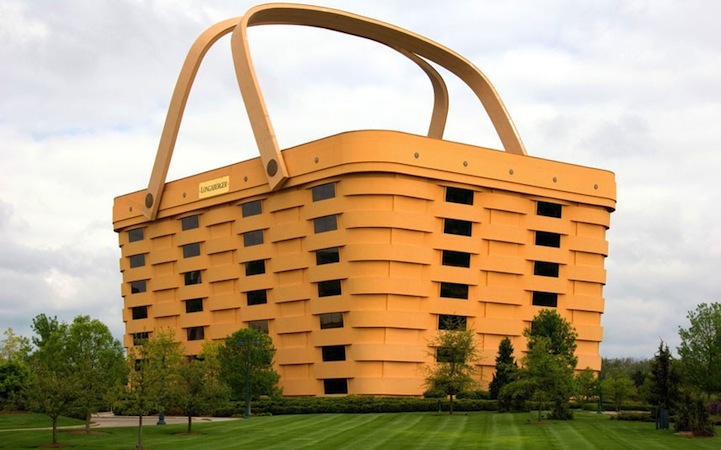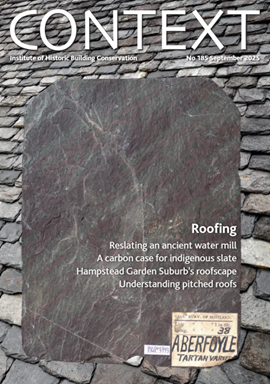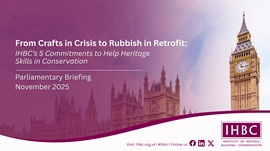The Big Basket
The Big Basket building, in Newark, Ohio, was built as the headquarters of the Longaberger Company, an American manufacturer of handcrafted maple wood baskets and other lifestyle products. It is one of the most famous examples of mimetic or novelty architecture, in which buildings are designed to mimic or represent objects associated with their function.
In the case of the Big Basket building, it was designed to replicate the company's best selling product, the Medium Market Basket, but 160 times larger.
Architects had initially proposed designs that were merely suggestive of a basket, until the company's founder Dave Longaberger pointed to one of the baskets and told them to “make it look exactly like that”.
The 180,000 sq. ft. building cost $30 m to construct and was completed in 1997. It is 7-storeys tall with a central atrium and glass ceiling to provide natural light. It is topped by two steel handles, each weighing 75 tons, which are fitted with heating elements to prevent them from freezing and so protecting the glass atrium below from falling ice. On each side of the top of the building are two gold-leaf-painted 'Longaberger' tags measuring 25 x 7 ft.
In February 2016, after a period of falling profits and staff reductions, Longaberger's parent company JRJR Networks announced that the remaining employees would be moved out from the Newark headquarters.
One of the common problems with mimetic architecture, is its re-sale value, and the future of the Big Basket building has been uncertain. However, there does appear to be popular support in Newark for preserving it as a local landmark, with ideas for future uses including; converting it into a hotel, a multi-family residence, senior housing or an academic building.
Jim Klein, a former Longaberger president who hopes to get the building included on the National Register of Historic Places, said: “The Big Basket is like the St. Louis Arch. It's a really important part of southeastern Ohio history."
In January 2018, it as reported that the Big Basket had been sold to local developer Steve Coon for $1.2m, considerably less than the asking price of $7.5m. Coon has not revealed what he intends to do with the building.
Ref https://quartzy.qz.com/1176205/basket-shaped-building-in-ohio-is-sold/
[edit] Related articles on Designing Buildings Wiki
- Ark Encounter, Kentucky.
- Big Duck.
- Building of the week series.
- CCTV Headquarters.
- Dali Theatre and Museum.
- Dancing House, Prague.
- Dunmore Pineapple.
- Fish Building, India.
- Little Crooked House, Poland.
- Luxor Las Vegas.
- Mimetic architecture.
- Office Center 1000 Kaunas.
- Robot Building, Bangkok.
- The Oculus.
- Unusual building design of the week.
- Watts Towers.
[edit] External references
IHBC NewsBlog
Latest IHBC Issue of Context features Roofing
Articles range from slate to pitched roofs, and carbon impact to solar generation to roofscapes.
Three reasons not to demolish Edinburgh’s Argyle House
Should 'Edinburgh's ugliest building' be saved?
IHBC’s 2025 Parliamentary Briefing...from Crafts in Crisis to Rubbish Retrofit
IHBC launches research-led ‘5 Commitments to Help Heritage Skills in Conservation’
How RDSAP 10.2 impacts EPC assessments in traditional buildings
Energy performance certificates (EPCs) tell us how energy efficient our buildings are, but the way these certificates are generated has changed.
700-year-old church tower suspended 45ft
The London church is part of a 'never seen before feat of engineering'.
The historic Old War Office (OWO) has undergone a remarkable transformation
The Grade II* listed neo-Baroque landmark in central London is an example of adaptive reuse in architecture, where heritage meets modern sophistication.
West Midlands Heritage Careers Fair 2025
Join the West Midlands Historic Buildings Trust on 13 October 2025, from 10.00am.
Former carpark and shopping centre to be transformed into new homes
Transformation to be a UK first.
Canada is losing its churches…
Can communities afford to let that happen?
131 derelict buildings recorded in Dublin city
It has increased 80% in the past four years.















